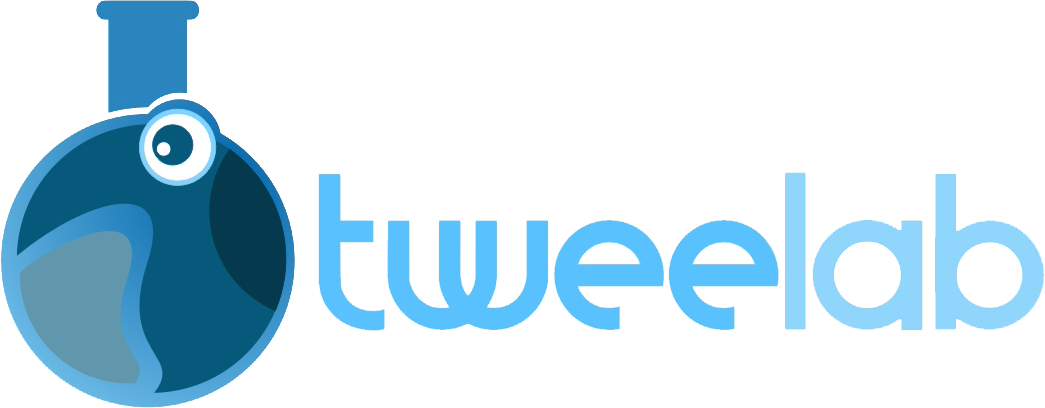In the world of WordPress hosting, it’s not uncommon to encounter a few bumps along the way. However, fear not, as the saying goes, ‘Where there’s a will, there’s a way.’
This article delves into the key reasons why common WordPress hosting issues are easily resolved. From sluggish loading times to pesky plugin conflicts, we’ll explore the solutions that can swiftly get your website back on track.
So, let’s dive in and uncover the secrets to a smoother hosting experience.
Key Takeaways
- Common WordPress hosting issues such as slow loading times, plugin conflicts, server errors, and database connection issues can be easily fixed.
- Performance-related issues can be resolved by choosing lightweight themes and plugins, optimizing images, and optimizing the database.
- Plugin-related issues can be addressed by identifying conflicting plugins, updating plugins, and troubleshooting by deactivating plugins one by one.
- Server-related issues can be resolved by troubleshooting server settings, checking for software conflicts, optimizing server resources, and keeping server software up to date.
Slow Loading Times
Why do slow loading times occur in WordPress hosting?
Slow loading times can occur in WordPress hosting for a variety of reasons. One common reason is the use of heavy themes or plugins that require a lot of resources to load. These themes and plugins can slow down the website’s performance and result in longer loading times.
Another factor that can contribute to slow loading times is inadequate server resources. If the server hosting the WordPress website does not have enough CPU power, RAM, or storage capacity, it can lead to slow loading times.
Additionally, poorly optimized images and database queries can also impact the loading speed of a WordPress website.
To address these issues, it is important to choose lightweight themes and plugins, optimize images, and regularly optimize the database to ensure faster loading times.
Plugin Conflicts
Plugin conflicts are a common issue in WordPress hosting. When different plugins interact with each other or with the theme, conflicts can arise, causing various issues on the website.
Here are some common reasons for plugin conflicts:
- Outdated plugins: Using outdated versions of plugins can lead to conflicts, as newer versions may not be compatible with the older ones.
- Incompatible plugins: Some plugins may have conflicting code or conflicting functionality, resulting in conflicts when used together.
- Theme compatibility: Certain plugins may not be compatible with specific themes, leading to conflicts between the plugin and the theme’s code.
Resolving plugin conflicts usually involves identifying the conflicting plugins, updating them to the latest versions, or finding alternative plugins that provide similar functionality without conflicts. Additionally, troubleshooting steps like deactivating plugins one by one can help pinpoint the conflicting plugin.
Regularly updating plugins and ensuring compatibility can prevent future conflicts and maintain a smooth-running WordPress website.
Server Errors
Server errors can significantly impact the performance and functionality of a WordPress website. These errors occur when the server hosting the website encounters a problem that prevents it from processing the requested actions.
Common server errors include the 500 Internal Server Error, 502 Bad Gateway, and 503 Service Unavailable. These errors can be caused by various factors, such as misconfigurations, server overload, or issues with the server’s software or hardware.
Resolving server errors requires technical expertise and often involves troubleshooting the server settings, checking for software conflicts, and optimizing server resources.
Additionally, keeping the server software up to date and regularly monitoring the server’s performance can help prevent server errors and ensure a smooth running website.
Database Connection Issues
Database connection issues can cause significant disruptions to the functionality and performance of a WordPress website. These issues occur when the website is unable to establish a connection with the database server, resulting in errors and the inability to retrieve or update data.
Common causes of database connection issues include incorrect database credentials, server overload, and network connectivity problems.
To fix these issues, website owners can follow these steps:
- Double-check the database credentials, including the username, password, and database name.
- Ensure that the database server is running and accessible.
- Test the network connectivity between the website server and the database server.
Insufficient Hosting Resources
Another common issue that can easily be fixed in WordPress hosting is the lack of adequate hosting resources. Insufficient hosting resources can result in slower website performance, frequent downtime, and limited functionality.
When a website receives high traffic or requires resource-intensive plugins or themes, it may strain the hosting resources, leading to poor user experience. Fortunately, this issue can be resolved by upgrading the hosting plan or opting for a hosting provider that offers more robust resources.
Upgrading to a higher-tier plan will provide more RAM, CPU power, and storage space, allowing the website to handle increased traffic and resource demands.
Additionally, choosing a hosting provider that specializes in WordPress hosting can ensure that the necessary resources are readily available, optimizing the website’s performance and overall functionality.
Theme Compatibility Problems
One prevalent issue that can be easily resolved in WordPress hosting is the problem of theme compatibility. When a theme is not compatible with a website’s hosting environment, it can lead to various issues, such as broken layouts, missing features, or even complete site crashes.
Fortunately, there are several steps that can be taken to address this problem:
- Check theme requirements: Ensure that the theme meets the minimum requirements of the hosting environment.
- Update the theme: Keep the theme up to date by installing the latest version, as newer versions often include bug fixes and compatibility improvements.
- Test the theme: Before activating the theme on a live site, test it on a staging environment to identify and resolve any compatibility issues.
Inadequate Security Measures
Many WordPress hosting issues can be easily resolved by implementing stronger security measures. Inadequate security measures can leave a website vulnerable to various threats, such as hacking, malware, and data breaches.
WordPress is a popular target for hackers due to its widespread use and the potential for exploiting vulnerabilities in themes, plugins, and weak passwords. By implementing robust security measures, such as using secure hosting providers, regularly updating WordPress core, themes, and plugins, and enforcing strong passwords, website owners can significantly reduce the risk of security breaches.
Additionally, implementing a web application firewall (WAF) and regularly scanning for malware can further enhance website security. It is crucial to prioritize security to protect sensitive data, maintain website functionality, and build trust with visitors.
Malware Infections
Continuing from the previous subtopic, the presence of malware infections poses a significant challenge for WordPress hosting. Malware refers to malicious software that can infect websites and compromise their security. When a WordPress site is infected with malware, it can lead to various issues, including data breaches, website defacement, and performance degradation.
Here are three key points to consider regarding malware infections in WordPress hosting:
- Malware detection: WordPress hosting providers should have robust security measures in place to detect malware infections promptly. This includes implementing regular security scans and utilizing advanced malware detection tools.
- Malware removal: In the event of a malware infection, it is crucial to have a reliable and efficient process for removing the malware from the affected WordPress site. This may involve using security plugins, manual inspection of files, and restoring from clean backups.
- Prevention strategies: To mitigate the risk of malware infections, WordPress hosting providers should implement proactive measures such as regular software updates, strong password policies, and firewall protection. Educating website owners about best security practices can also help prevent malware infections.
DNS Configuration Problems
Moving on to the next common issue in WordPress hosting, we will now discuss DNS configuration problems.
DNS, or Domain Name System, is responsible for translating domain names into IP addresses, allowing users to access websites. DNS configuration problems can lead to various issues, such as websites not loading or loading slowly, email delivery failures, or even website downtime.
Common causes of DNS configuration problems include incorrect DNS settings, outdated or missing DNS records, or issues with DNS propagation.
To fix these problems, it is crucial to ensure that the DNS settings are correctly configured, DNS records are up to date, and allow enough time for DNS propagation.
In some cases, contacting the hosting provider or DNS provider may be necessary to resolve more complex DNS configuration issues.
Lack of Regular Updates
To address another common issue in WordPress hosting, it is important to highlight the significant impact of the lack of regular updates. This issue arises when website owners fail to update their WordPress core, themes, and plugins regularly.
Here are three reasons why the lack of regular updates can be problematic:
- Security vulnerabilities: Outdated versions of WordPress, themes, and plugins can expose websites to security risks, making them more susceptible to hacking attempts and data breaches.
- Compatibility issues: As WordPress evolves, updates are made to ensure compatibility with newer technologies and software versions. Failing to update can result in compatibility issues, causing site functionality to break.
- Performance degradation: Updates often include bug fixes and performance enhancements, which can improve website speed and overall performance. Neglecting updates can lead to a sluggish website and a poor user experience.
Regular updates are crucial for maintaining a secure, stable, and optimized WordPress website.
Frequently Asked Questions
How Can I Improve the Loading Times of My WordPress Website?
To improve the loading times of a WordPress website, consider optimizing images, using a caching plugin, minimizing CSS and JavaScript files, enabling lazy loading, and choosing a reliable hosting provider with good performance and server response times.
What Should I Do if I Encounter a Plugin Conflict on My WordPress Site?
If encountering a plugin conflict on your WordPress site, troubleshoot by deactivating plugins one by one to identify the problematic one. Update plugins and ensure compatibility with the latest WordPress version. Seek assistance from the plugin developer or support forums if necessary.
How Can I Troubleshoot Server Errors on My WordPress Hosting?
To troubleshoot server errors on your WordPress hosting, start by checking server logs for any error messages. Next, ensure that your server meets the necessary requirements for running WordPress. Finally, disable plugins or themes that may be causing conflicts.
What Steps Should I Take if I Face Database Connection Issues on My WordPress Site?
If you face database connection issues on your WordPress site, start by checking your database credentials, ensuring the database server is running, and verifying the database host name and port.
How Can I Ensure That My WordPress Site Has Sufficient Hosting Resources to Operate Smoothly?
To ensure a WordPress site operates smoothly, it is crucial to have sufficient hosting resources. This includes adequate server space, bandwidth, and memory allocation, which can be ensured by selecting a reliable hosting provider and regularly monitoring resource usage.

